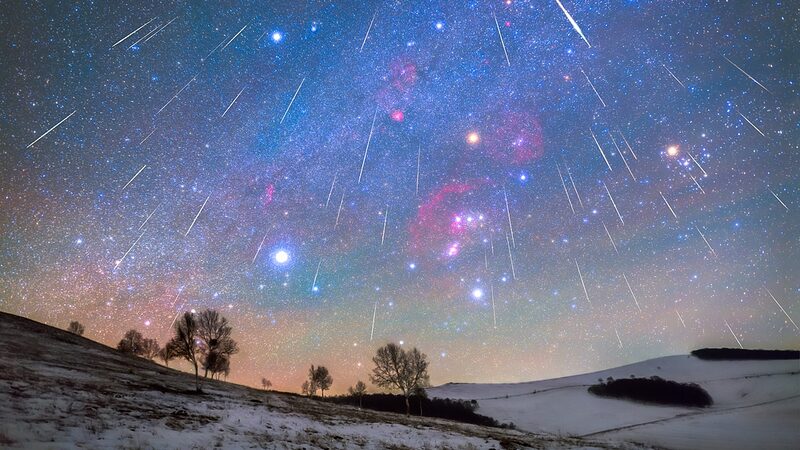Hey sky lovers! 🌠 Get ready, because the spectacular Geminid meteor shower is set to peak this Friday!
As Wang Kechao from the Purple Mountain Observatory says, \"Each year, from December 4 to 20, the Geminids grace our skies with up to 150 meteors per hour during their peak.\" That's a lot of shooting stars! 🌟
No wonder it's called the 'most reliable meteor shower'—it never disappoints those of us eagerly waiting for a cosmic show! 🚀
The Geminids are visible worldwide thanks to their broad 24-hour peak. But heads up! NASA notes that this year's display might be a bit dimmed by a nearly full moon. 🌕 So cross your fingers for clear skies!
No need for telescopes or fancy gear. Just find a comfy spot, preferably away from city lights, and look up between midnight and dawn. It's that easy! 🙌
For the best experience, seek out dark skies. Meteor showers shine brightest on cloudless nights when the moon is smallest. Perfect excuse for a late-night adventure with friends! 🌌
So, what's a meteor shower anyway?
Most meteor showers come from comet debris, but the Geminids are unique—they hail from an asteroid named 3200 Phaethon. How cool is that? 🪨✨
When space rocks enter Earth's atmosphere, they heat up due to air resistance, causing that brilliant glow and the fiery tail we call a 'shooting star.' Don't forget to make a wish! 💫
And if you miss the Geminids, no worries! The Ursids meteor shower peaks around December 22. Mark your calendars! 📅
Reference(s):
Save the date! Spectacular Geminid meteor shower to light up the sky
cgtn.com




